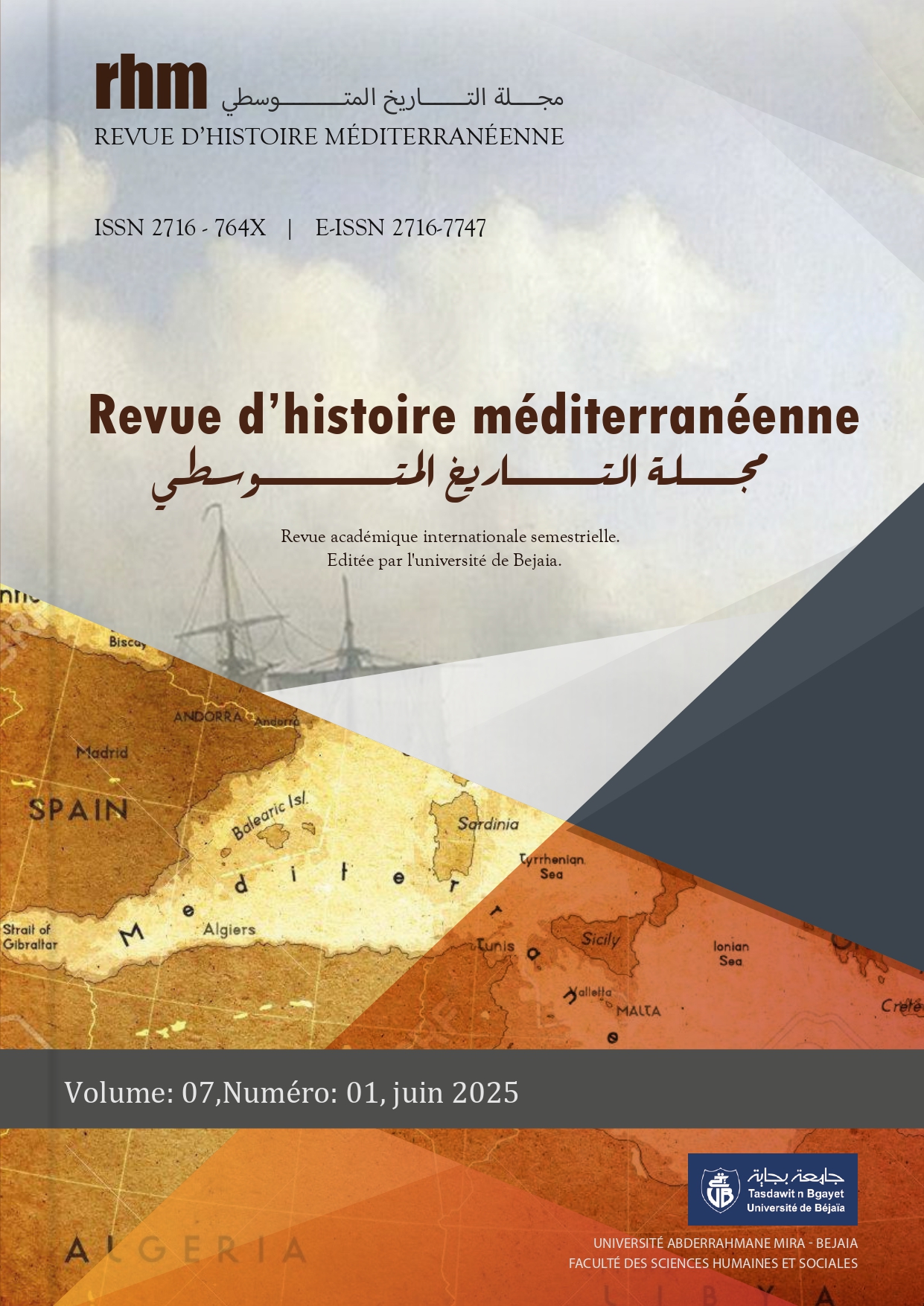Humanitarian organizations in the aid of Algerian refugees in Tunisia and Morocco through archival documents
Les organisations humanitaires à l’aide des réfugiés algériens en Tunisie et au Maroc à travers des documents d’archives
Abstract
The aim of this study is to highlight the suffering of Algerian refugees on the eastern and western Algerian borders as a result of the genocide and scorched earth policy implemented by the French army since 1956, leaving traces that forced Algerian families to move their children, elderly and women. The influx of Algerian refugees to Tunisia and Morocco was intermittent, and with the intensification of the policy of repression and torture starting in 1957, the number of refugees multiplied by thousands, which led to the aggravation of the situation in Tunisia and Morocco, The Red Crescent in both countries requested their governments to intervene and seek international aid and support.
In the face of the steady increase, the United Nations High Commissioner for Refugees took it upon itself to organize a global campaign in solidarity with Algerian refugees, and it was decided to start providing aid by the International Red Cross to refugees in Tunisia and Morocco.
We believe that the topic of Algerian refugees has not received sufficient attention in academic research. Exceptions include a study by Farouk Benatia on "Humanitarian Actions during the Liberation Struggle 1954-1962", but research in this area remains largely unexplored. In this study, we attempted to highlight the extent of the suffering experienced by Algerian refugees in Tunisia and Morocco, We therefore posed the following problem: Was the revolution able to meet the needs of Algerian refugees through the humanitarian aid provided by international organizations and humanitarian bodies?
We adopted both a historical and analytical approach, as well as an inductive method. In the end, we reached a set of conclusions, namely that the humanitarian situation of Algerian refugees in Tunisia and Morocco was a major concern for the leaders of the Algerian revolution, making it necessary to care for this group. Moreover, Tunisia and Morocco used the Algerian refugees as a means of pressure on international bodies at the United Nations to request humanitarian aid, aiming to benefit from it due to their limited financial resources. Had it not been for the assistance provided by international humanitarian organizations following the call for help, the Algerian revolution would not have been able to meet the basic needs of these refugees.











